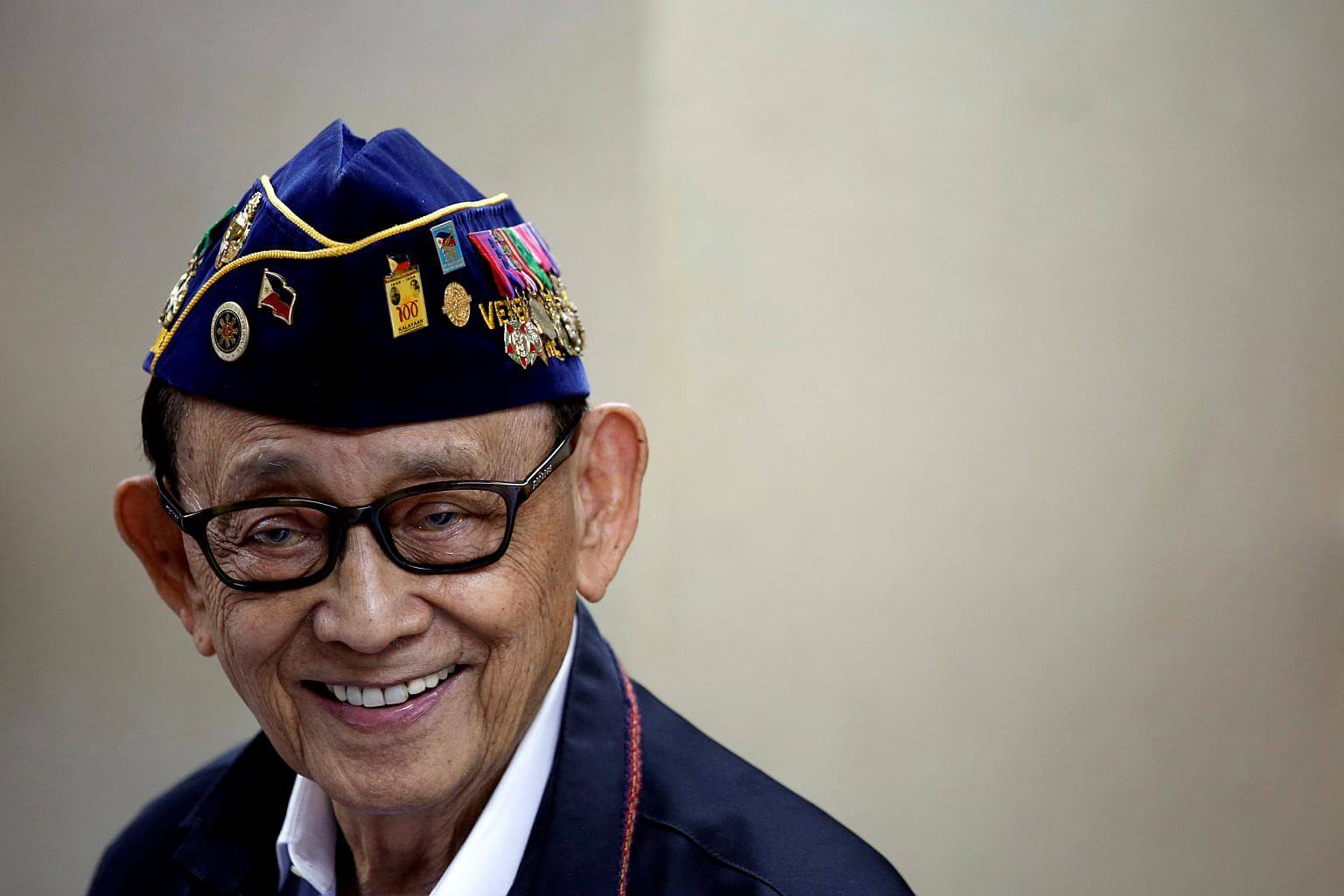Why Fidel Ramos resigned as special envoy to China: Philippine Daily Inquirer
Sign up now: Get insights on Asia's fast-moving developments

Former Philippine President Fidel Ramos reacts as he speaks to journalists during a trip to Hong Kong.
PHOTO: REUTERS
Follow topic:
In its editorial on Nov 02, the paper says President Rodrigo Duterte's actions totally disappointed the nation's former President who initially backed him.
Malacañang Palace on Monday night (Oct 31) said it had not yet received official word from ex-President Fidel V. Ramos that he was resigning his position as special envoy to China-but the stories that went around over the long weekend only confirmed what various members of the press already knew:
The country's oldest living former president was, in fact, giving up the post. In itself this resignation is a small matter; understood as part of an unmistakable pattern of calibrated disavowments of Duterte administration policy, the resignation is a matter of serious concern.
Mr Ramos was among the influentials who helped convince President Duterte to run for the presidency; in President Duterte's inaugural address, the literal first words were addressed, in thanksgiving, to the martial law enforcer-turned-Edsa hero.
So when Mr Ramos used the occasion of the 100th day of the Duterte presidency (itself a tradition that Mr Ramos did much to establish) to mount a campaign of candid criticism against the Duterte brand of governance, the administration listened-and did not launch an attack in return.
Mr Ramos used his column in the Manila Bulletin to paint a sobering picture of opportunities lost.
"In the overall assessment by this writer, we find our Team Philippines losing in the first 100 days of Du30's administration-and losing badly. This is a huge disappointment and let-down to many of us."
The cause: President Duterte failed to "hit the ground running instead of being stuck in unending controversies about extrajudicial killings of drug suspects and in his ability at using cuss-words and insults instead of civilised language."
The former president also declined to join the president's historic state visit to Beijing-an occasion the special envoy to China would have been expected to join. His conspicuous absence was a statement in itself; and his presence at events where President Duterte dramatically announced a "separation" from the United States would have been problematic.
The West Point alumnus and personal friend of the former Chinese president Jiang Zemin is an advocate of closer Philippine-US military ties as well as a higher Philippine profile in international affairs. Putting the Philippines on the map, he used to say.
His resignation as special envoy, then, was only a matter of time.
But now Mr Ramos has written another trenchant criticism of Duterte administration policy-this time of President Duterte's inexplicable refusal to honor the country's commitment to (and many years of painstaking negotiation of) the landmark climate change pact known today as the Paris Agreement.
The lead paragraph of his Oct 24 column is as forceful as it gets. "In his consistently frequent insulting diatribes against the US, EU, and the UN, in which President Duterte also keeps complaining against the December 2015 Paris Agreement on Climate Change (crafted by 195 nations, the Philippines included), he is unwittingly shooting himself in the mouth, and also all of us, 101.5 million Filipinos. He may claim that to be more 'insulting than friendly' to our long-established allies is part of his God-given 'destiny.' But, this is obviously wrong, and full of S…. T!!!."
Obviously, President Duterte's continued use of rude or undiplomatic language has gotten under Mr Ramos' skin again; he is reduced to using the same enemy-creating rhetoric.
But the larger point is President Duterte's decision to jettison the decades of ultimately successful climate change negotiation by the Philippines, in order to indulge his idea that the Western nations have yet again managed to put countries like the Philippines at a disadvantage. The truth is, President Duterte is wrong. Using all capitals, Mr Ramos argued that: "It is clear enough (and should be readily understood by leaders) that the Paris agreement does not impose emission reduction on the Philippines. Should any country decide to eventually become a party to the agreement, it will only be asked to submit its nationally determined contributions, which are essentially successive 5-year climate plans that we can determine on our own, according to our national circumstances, development goals and domestic capacity.
In other words, President Duterte misunderstands the Paris Agreement. And ex-president Ramos has had enough.
* The Philippine Daily Inquirer is a member of The Straits Times media partner Asia News Network, an alliance of 21 newspapers.

